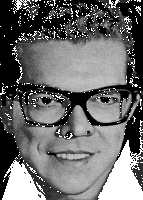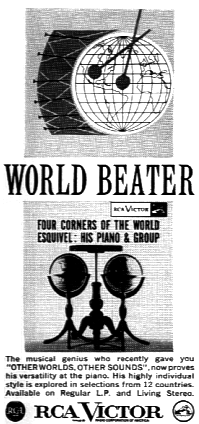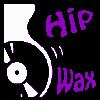
Esquivel, b. 1925
  |
Pianist/composer/arranger Juan Garcia Esquivel was a favorite artist in Mexico City before RCA Victor brought him to the United States in 1958. As is typically the case, the early Mexican sides are his most interesting. (Some are available on the U.S. release To Love Again.) Most of the subsequent U.S. albums were expensive, elaborate experiments in recording technique. While most such albums relied heavily on cheesy, channel-separation gimmickry, Esquivel's maintained a consistently high level of musical intrigue as well as comical wonder. A native of Tampico, Mexico, Esquivel gave up engineering to play the piano on the radio. His first radio performance --fifteen minutes of fame to be-- was at the age of fourteen. Three years later he formed a small group which was heralded for its originality, and by 1940 he was composing for his own orchestra and chorus. By 1954, when he had become a popular recording artist in Mexico, he began to experiment with the "other" sounds that would become his trademark. In addition to "accent" instruments such as the theremin, the Esquivel sound is distinguished mainly by the slide guitar of Alvino Rey. Rey had been a master innovator and orchestra leader (while playing steel guitar!) himself. The other chiefly Esquivellian sound was a "wordless chorus" singing nonsense syllables. Although he arranged many of the Latin standards, Esquivel's idiom really is Hollywood, cocktail-lounge pop. There are Latin inflections and Latin percussion instruments here and there, but the real sound of Esquivel is typical of 1960s advertising. It is soap bubbles, pointy orange furniture, star-and-boomerang formica, and giggly blondes singing "Pow!" and "Zu-zu-zu-zu..." There are gimmicks galore, but the demanding, perfectionist Esquivel made ingenius, mostly tasteful use of them. Latin-Esque holds a significant place in the history of stereo records. A standout in Victor's Stereo Action ("the sound your eyes can follow") series, it was recorded with two separate orchestras in two separate studios: one for each channel. Fresh arrangements also contributed to fantastic results. See it in Sound, an earlier, effects-laden Stereo Action attempt, had failed dismally at originality and being truly "scored for stereo." Its shelving no doubt sent Esquivel "back to the drawing boards" with greater determination to fulfill the Stereo Action mission. In addition to his own projects, Esquivel also arranged for a few dismissable records by [easy-listening] studio orchestras. From the start, Esquivel cultivated a reputation as both a ladies' man and a tyrant behind the baton. His touring production included dancers, who were subject to a fine whenever they dropped a smile. After the novelty or demand had subsided, Esquivel settled down for an eleven-year stint behind the piano at the Stardust in Las Vegas. He appeared on "The Tonight Show" with Johnny Carson in 1968; unfortunately the tape was destroyed in 1972. Perhaps his greatest legacy is thousands of short instrumental pieces recorded for television. Anyone who has watched U.S. television is likely to have heard Esquivel's compositions. Esquivel's reputation as one of the leading, quirky maestros of the hi-fi era is assured. The disappointing initial sales of this "musician's musician" finally are being overcome through latterday releases and even a film. And something even most Esquivel fans do not realize is that in 1969 he did make one or two "hip" recordings (1969's "El Sonido de Las Vegas" EP), with funky drums and even psychedelic guitar. Don't let the clunky black glasses fool you! |
Esquivel LPs
| Rating | |
| 6 | Las Tandas de Juan Garcia Esquivel; RCA Victor Mexicana MKL-2001; 1956 (live radio broadcasts; Solo Par Bailar; Otra OTR-36; 1980) |
| 8 | To Love Again; RCA Victor LPM-1345; 1957 (Juan Garcia Esquivel y su Orchestra; Sonorama OTR-70; 1982) |
| Esquivel y su Piano Cristalino; RCA Victor Mexicana | |
| 6 | Other Sounds Other Worlds; RCA Victor LSP-1753; 1958 |
| 4 | Four Corners of the World; RCA Victor LSP-1749; 1958 |
| 7 | Exploring New Sounds in Hi-Fi; RCA Victor LPM-1978; 1958 |
| 7 | Exploring New Sounds in Stereo; RCA Victor LSP-1978; 1958 |
| 5 | Strings Aflame; RCA Victor LSP-1988; 1959 |
| 5 | See it in Sound!; RCA Victor; NA/1960 (deservedly unreleased until CD) |
| 6 | Infinity in Sound (Vol. 1); RCA Victor LSP-2225; 1960 |
| 7 | Infinity in Sound Vol. 2; RCA Victor LSP-2296; 1961 |
| 7 | More of Other Sounds Other Worlds; Reprise R9-6046; 1961 |
| 7 | Latin-Esque; RCA Victor Stereo Action LSA-2418; 1962 |
| 5 | The Best of Esquivel; RCA Victor LSP-3502; 1966 (compilation) |
| 7 | The Genius of Esquivel; RCA Victor LSP-3697; 1967/1966 (in Mexico as Esquivel! Actual; RCA Victor MKL-1710; 1966) |
| 7 | Esquivel 1968; RCA Victor RCA Victor Mexicana MKS-1777; 1968 |
| Nuevos Exitos de Esquivel; RCA Camden CAS-394; 1969 (compilation) | |
| Burbujas; Discos America; 1978 | |
| Odisea Burbujas; Discos America 534; 1979 (compilation) | |
| Burbujas: Vamos al Circo; Discos America 589; 1981 | |
| 15 Internacionale Exitos de Juan Garcia Esquivel; RCA; 1986 (compilation) |
Partly Esquivel LPs
| Rating | |
| 4 | Ames Brothers: Hello Amigos; RCA Victor LSP-2100; 1960 |
| Tony Camargo; RCA Victor Mexicana MKL-1359; 1957 | |
| Esquivel/Rafael de Paz/Hector El-Arabe: La Novia de México--Maria Victoria; RCA Victor Mexicana MKL-1065; 1956 | |
| Esquivel/Rafael de Paz: Cabaret Tragico ST; RCA Victor Mexicana MKL-1088; 1957 | |
| Esquivel/Rafael de Paz/Hector El-Arabe: Mexican Sweetheart--Maria Victoria; RCA Victor LPM-1462; 1957 | |
| 2 | The Living Strings: In a Mellow Mood; RCA Camden CAS-709; 1962 (arranger only) |
| Pedro Vargas Sings; RCA Victor LPM-1182; 1957 | |
| Various: Christmas Programming from RCA Victor; RCA Victor SP33-64; 1959 | |
| 7 | Various: The Dancing Beat of the Latin Bands; RCA Victor LSP-2087; 1960 |
| 6 | Various: The Merriest of Christmas Pops; RCA Victor LSP-2032; 1959 |
| Various: Musica de Ayer--Toñya LaNegra; RCA Camden CAM-41; 1957 | |
| 4 | Various: Sounds Fantastic!; RCA PRS-210; 1966 |
| 4 | Various: Stereo Festival (box set); RCA PRS-251-6; 1967 |
Esquivel 45s, EPs, & Compact-33s
| Rating | |
| 8 | Esquivel & his Sonorama Orchestra: Amor/Nocturnal; RCA Victor 47-6008; 1957 (& promo as Record Prevue P-499-7; rec. in Mexico) |
| 8 | Esquivel y su Orquesta Sonorama: Besame Mucho EP; RCA Mexicana MKE-89; 1957 (Besame Mucho, Amor, Vereda Tropical, Nocturnal; in U.S. as EPA-706) |
| 6 | That Old Black Magic/Cielito Lindo; RCA Victor 47-7316; 1958 (non-LP B-side) |
| 8 | Whatchamacallit/I Feel Merely Marvelous; RCA Victor 47-7462 (non-LP B-side) |
| 8 | Latin-Esque EP; RCA Victor VLP-2418; 1962 (Compact-33, 33 rpm; Latin-Esque, Cachito, La Paloma, Jungle Drums, Estrellita, Carioca) |
| 8 | Mah-Na Mah-Na/Don Quijote; Odeon; 1969 |
| 8 | Vivo En Un País Tropical/Amar Amar Amar; Odeon; 1969 |
| 8 | Juan Garcia Esquivel y Su Orquesta: El Sonido de Las Vegas EP; Orfeon EP-932; 1969 (Vivo en un Pais Tropical, Mah-Na Mh-Na, Amar, Don Quijote) |
Hyp Records is a 3-part guide: |
Shop Hip WaxSome items above may be available at Hip Wax Hip Wax |
Hyp Records Guide © 1996 Hip Wax